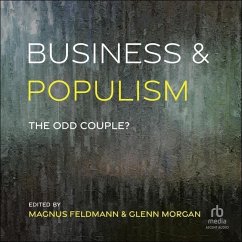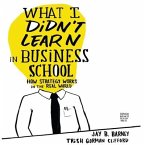The rise of populist movements in various parts of the world is widely perceived as a significant challenge to policymaking, mainstream political parties, and even to liberal democracy. Yet we know very little about the impact of populism on business, beyond the fact that the anti-elite challenge of populism frequently targets business with policies to restrict globalization, outsourcing, and labor migration while at the same time embracing capitalism, low taxes, and deregulated markets. Populists also glory in presenting themselves as authentic representatives of the people, symbolizing this in their demotic language, their rejection of standards of "polite" society and liberal "woke" values, including attacking core intermediary institutions such as independent central banks, the judiciary, the civil service, universities and expert knowledge, and a free press central to post-1945 versions of liberal democracy. When faced with these disruptions and the risks they pose for business, how does business respond? Does it choose to support or challenge populists in different countries? This volume advances the debate by providing empirical studies of the impact of right-wing populism on business. Finally, it considers whether populism will continue to be influential and how its success might impact business strategy and structure.








